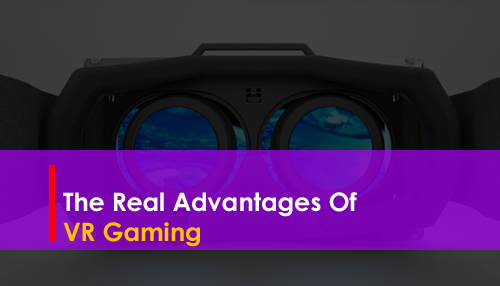VR Gaming has held the unofficial position of the most buzzworthy trend in tech for more than a year now. Devices have gone mainstream, games have been developed, articles have been written, and as a result, we’ve all slowly but surely grown more used to the phenomenon. But a lot of us still haven’t spent much (or any) time playing games in this exciting new format, which leads to a fair question of what the actual advantages are.
On the surface, they might appear to be somewhat few and far between. VR can seem like glorified 3D television built into expensive headsets that come along with HP reverb g2 prescription lenses that will make their respective companies a lot of money. That’s actually a fair way to look at some of the lazier VR experiences that have been developed. In a greater sense, this style of gaming carries some legitimate advantages that can make the next era of video games more fun for all of us.
New Concepts
Back in 2015, the head of Oculus at Facebook did an interview with Venture Beat discussing some of what was going on in the industry. Speaking at one point about a hockey simulator, he acknowledged that a lot of people didn’t expect first-person sports games to be possible. That is, until a developer discovered a game mechanic that made it all come together. That’s a fascinating way to think about VR, and it’s one of the true advantages of the medium. VR is just different, and that is leading developers to strive for new ideas, new mechanics, and interesting ways of putting forth games that seem impossible or unlikely. One of the main perks of VR is that it leads to innovation in development.
Creative Inspiration
Not all VR games fit with this point, but an almost surprising number of them revolve around player creativity. Some games (Tiltbrush comes to mind) are almost entirely about artistic expression. But even other games, from world builders to mystery solvers and even some of the more innovative shooters, are primarily about problem-solving. This is true of some other games on console and mobile platforms, but the chance to get creative in a first-person environment is different. In a way, VR games challenge our minds more.
Full Environments For Simpler Games
It goes without saying that VR games provide full, interactive environments. But it’s interesting to consider how these can enhance smaller, simpler games. One might consider casino slots and poker as prime examples. These games have grown far more sophisticated online through programs seeking to provide fun themes and interactive elements, but real casino environments still pack certain advantages like more visual stimuli and tactile satisfaction. These are the kinds of advantages VR can replicate, not just with casino games but with board games, tabletop games, and more. It can combine the convenience of digital versions of these games with the satisfying elements of the real thing.
Mental Investment
When describing the experience of playing an adventurous climbing game on Oculus, one writer put it best by saying that he got a chill down his spine. Physical experiences like climbing and jumping are often the most thrilling ones in VR because the systems literally trick our brains into investing in the experiences. There’s some debate over whether or not this could be unhealthy, but from time to time it can totally be both fun and interesting. You can face fears and pull off physical feats that you might not dare to in real life, such as leaping across a chasm or climbing the side of a steep cliff.
About Author:
Jim Lewis is a blogger and editor based in Denver, CO. After attending college in California, he decided to beat the heat and make tracks for the Rockies. His passions include gaming, craft beer, music, food, and the outdoors. When he’s not busy writing, you can probably find him outside, scaling the side of some cliff.


